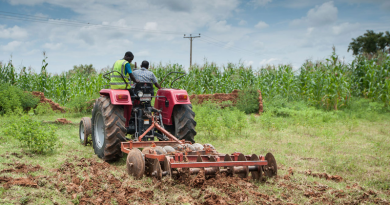Neonicotinoids in the media: Syngenta’s position
Our products are safe and effective when used as intended. Wherever we operate, we do this in full compliance with local laws and regulations. What’s more, upholding international standards, we only sell products in developing countries when they have an OECD registration and/or a complete regulatory data package based on OECD guidelines available.
Since pollinators play a vital role in maintaining a healthy and productive agricultural system, we all have a vested interest in protecting their health. We fully stand by the safety and effectiveness of thiamethoxam. We are committed to making sure that, wherever possible, farmers can continue to have access to a leading technology such as thiamethoxam.
The many emergency authorizations granted by various EU countries show that farmers need this technology to protect their crops; these EU countries have sophisticated health-based regulatory systems and they have approved it for use. In fact, on November 18, 2021, the European Food Safety Authority (EFSA) said that EU countries were justified in granting emergency authorizations for the use of EU-banned neonicotinoid insecticides on sugar beet crops in 2020 and 2021.
“The assessments cover 17 emergency authorisations for plant protection products containing clothianidin, imidacloprid, thiamethoxam and thiacloprid granted by Belgium, Croatia, Denmark, Finland, France, Germany, Lithuania, Poland, Romania, Slovakia and Spain.”
“EFSA has concluded that in all 17 cases the emergency authorisations were justified, either because no alternative products or methods – chemical or non-chemical – were available or because there was a risk that the pest could become resistant to available alternative products.”
Even with modern pesticides, farmers can lose a significant portion of their crops because of pests and disease. Without pesticides, the losses would be catastrophic: as much as 50% for wheat, almost 70% for corn, and nearly 80% for rice as many studies have shown (i.e. Importance & Benefits of Pesticides and OECD-FAO Agricultural Outlook)
Only through continued innovation in agriculture can we meet the extraordinary environmental and food-security challenges ahead and further improve the sustainability of farming activities. Those innovations include biologicals and other forms of crop protection, digitally precise farming, genetic improvements in plants, new and improved kinds of fertilizer – and, yes, environmentally responsible use of chemical pesticides. SOURCE: Syngenta.




